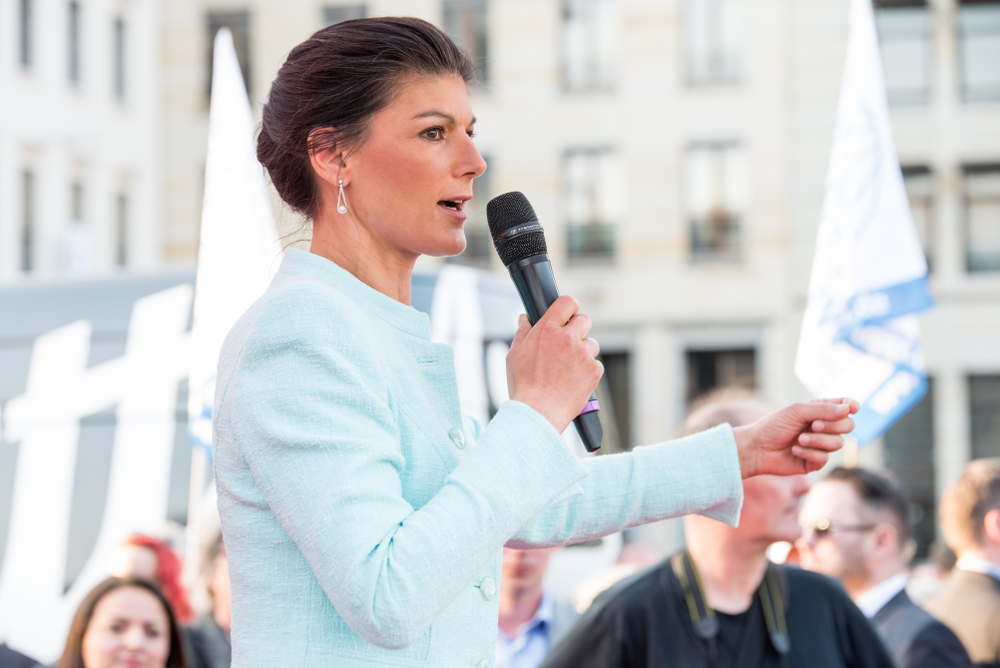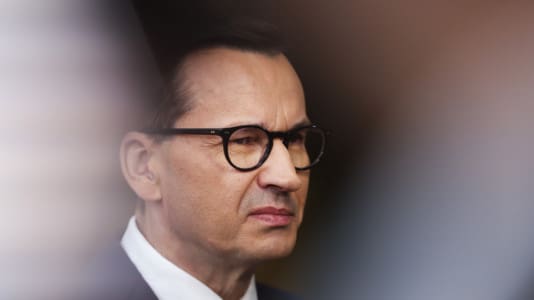The right-wing populist Alternative for Germany (AfD) party has found an unlikely defender in Sahra Wagenknecht, the hard-left firebrand nationalist who called moves by establishment politicians to ban the increasingly popular party “completely wrong” and dangerous for democracy.
In an interview published on Sunday with the ARD broadcaster, Wagenknecht insisted that attempts to suppress political adversaries with unconstitutional bans are contradictory to Germany’s democratic principles.
“I think the call for a ban on the AfD is completely wrong, and I find the discussion about it dangerous. Banning unpopular parties because they are becoming too strong is incompatible with a free society,” she told viewers.
The former Die Linke leader, who recently split from her old left-wing party to form a new political group, BSW — For Reason and Justice, called for unsavory parties to be beaten on the political battlefield and their ideas challenged, rather than martyring them and creating further civil unrest among an increasingly disillusioned electorate.
[pp id=98082]
Wagenknecht added that she hoped her new party could win around voters thinking of supporting the AfD based on its policies, instead of simply eradicating the opposition.
“I will be happy if AfD voters choose us in the future because they find our offer more serious and convincing,” she told the broadcaster.
Wagenknecht’s new political outfit shares the same view as the AfD when it comes to uncontrolled mass migration and calls for greater restrictions on newcomers to the country. The left-wing politician even praised her political competition for bringing the issue of mass migration to the forefront of the political debate in Germany.
“Because (the AfD) has become stronger, the question of ‘How do we reduce uncontrolled migration’ has finally arrived in politics,” she said.
[pp id=94840]
Wagenknecht revealed her belief that the longstanding pro-migration policies of her previous party, Die Linke, would struggle to resonate with an electorate becoming increasingly more socially conservative on the issue, and expressed her desire for the party to change course and “find itself” once more.
There is no political desire for a party that advocates “open borders, the right to stay for everyone, and radical climate activism,” she claimed.
On this point, the former communist reserved unlikely praise for Hungarian Prime Minister Viktor Orbán, who she claimed was right to stand up for the interests of his own citizens, even if she disagrees with him politically.
“I don’t have to like Orbán to say that what he’s doing is wiser in terms of the interests of his country,” she said.
Orbán has been a staunch opponent of Brussels’ proposed migration pact, which would see EU member states obliged to receive migrant quotas or face financial penalties for non-compliance. He has remained opposed to the continuous funding of the Ukraine war and is a long-standing advocate for peace in the region.
His administration has continued to import Russian gas and oil despite protestations from Brussels and recently became the first EU leader to shake hands with Russian President Vladimir Putin since Moscow’s invasion of eastern Ukraine in February last year as he attempts to navigate a peaceful solution to the ongoing conflict.






